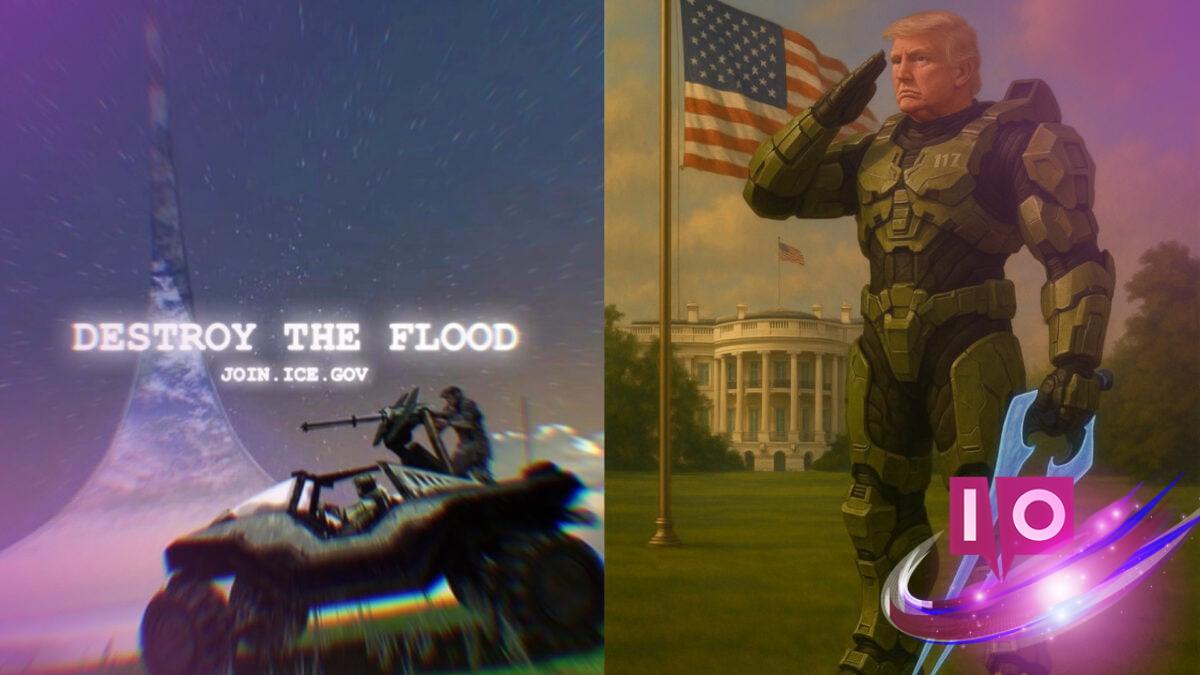Last Friday, Microsoft made waves by announcing a new Halo video game release for Sony’s PlayStation, historically an adversary to Microsoft’s Xbox. This unexpected move caused GameStop to issue a tongue-in-cheek press release, humorously declaring the end of the “console wars.” What followed was a viral exchange filled with memes, showcasing how significantly the online culture of contemporary politics has transformed.
The conversation kicked off with GameStop’s press release, crafted to mimic an official governmental statement.
A Statement from GameStop pic.twitter.com/GraJAT69aI
— GameStop (@gamestop) October 25, 2025
In response, the White House account known as Rapid Response 47 quote-tweeted the press release, jokingly claiming, “NUMBER 9: President Trump presides over the end of the 20-year Console Wars.” This quip aimed to satirically mirror Trump’s previous assertions about settling various conflicts.
This account is a part of the White House’s digital outreach, designed to counter unfavorable narratives with quick and poignant messaging. As amusing as this exchange was, it also represents how current government social media tactics have evolved.
NUMBER 9: President Trump presides over the end of the 20-year Console Wars https://t.co/TpeLhZt89Y
— Rapid Response 47 (@RapidResponse47) October 26, 2025
GameStop continued the exchange with their own playful retort, posting an image of Trump shaking hands with Master Chief, the iconic hero of the Halo series.
https://t.co/jI0ZrstLgz pic.twitter.com/VS32cV0RG7
— GameStop (@gamestop) October 27, 2025
The White House account also played along, sharing an AI-crafted image of Trump as Master Chief, sans helmet, with the catchy tagline “Power to the Players.”
Power to the Players https://t.co/GqNu0qdgmw pic.twitter.com/4Hw6G7i7aW
— The White House (@WhiteHouse) October 27, 2025
GameStop escalated the fun by quote-tweeting again, presenting a new image featuring Trump as Master Chief and Vice President JD Vance styled as Cortana, complete with exaggerated features that are frequently circulated as memes.
https://t.co/8DRFpgbFv5 pic.twitter.com/wWvOYrwSUR
— GameStop (@gamestop) October 27, 2025
Ryan Cohen, the CEO of GameStop, is publicly known as a supporter of President Trump. Following the 2024 election, he tweeted about Trump’s unfounded claims of winning the 2020 election against Joe Biden.
As the meme exchange continued, the Department of Homeland Security (DHS) joined the conversation, tweeting a manipulated Halo image along with the text “Finishing this fight,” which included an extreme call to “Destroy the Flood.” This distressing wording referred to the parasitic alien foes in the Halo franchise.
Finishing this fight. pic.twitter.com/6Ezq9NUqMq
— Homeland Security (@DHSgov) October 27, 2025
The Flood are known for their ability to infect and take over other life forms. Analysts have interpreted this rhetoric as highly charged and politically motivated. Matthew Gault of 404 Media commented that such comparisons are reminiscent of fascistic propaganda, equating marginalized groups with monsters seeking destruction.
Gault asserted, “This is about as fascist as you get, right? It directly compares immigrants looking for a better life with monsters threatening our safety. This kind of messaging is straight from the fascism playbook.”
Interestingly, the DHS account often dives deep into controversial online cultures. There’s uncertainty regarding who manages the DHS social media accounts, but they seem to engage with heightened far-right meme cultures. Just last week, DHS shared a dog-whistle video alongside the song “Little Dark Age,” popular among white supremacists.
Despite the humor and absurdity of these posts, GameStop’s stock value fluctuated significantly in reaction to the buzz, seeing a brief spike before declining to a 11% drop over the past month, a troubling 24% downturn over the entire year, according to market data.
In conclusion, the clever interplay between the tech world and contemporary politics through memes and humor signals an intriguing evolution in public discourse, influencing perceptions and connections in unexpected ways. Want to stay updated on this intersection of culture and technology? Dive deeper with Moyens I/O for more engaging content surrounding digital trends and modern politics.
